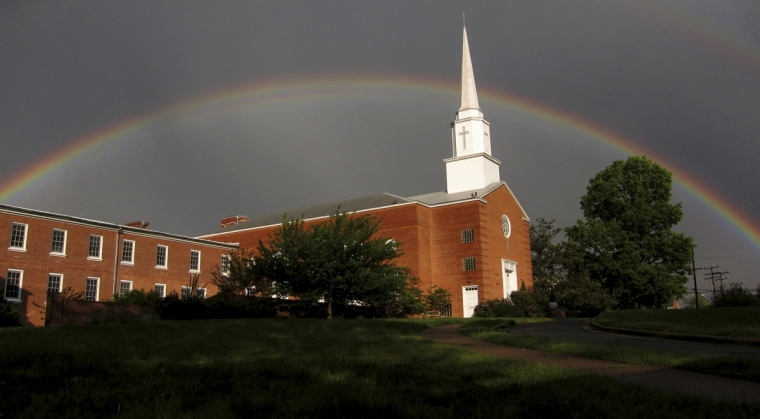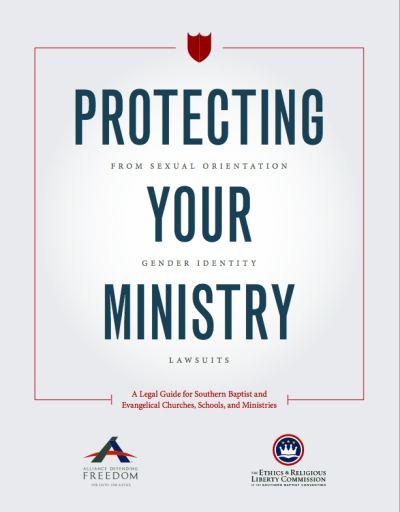Does sexual freedom trump religious freedom? A guide for churches & schools

WASHINGTON (Christian Examiner) – Alliance Defending Freedom has developed a guide to assist churches and Christian schools navigate potentially treacherous legal waters in the wake of the Supreme Court's decision in Obergefell v. Hodges, which legalized gay marriage nationwide.
During oral arguments for the case in April, Solicitor General Donald Verrilli argued in court that the ruling in the case could potentially change the government's policy toward churches and other religiously-affiliated institutions – especially in the areas of employment law and taxation.
Asked by Justice Samuel Alito if religious institutions that maintain a traditional understanding of marriage between one man and one woman would lose their tax exempt status, Verrilli showed the Obama administration's hand.
"It's certainly going to be an issue. I don't deny that. I don't deny that, Justice Alito. It is. It is going to be an issue," Verrilli told the high court.
Churches and religious schools have traditionally enjoyed a "ministerial exemption" on issues of hiring and termination, where each is allowed to hire ministers and employees based on religious criteria. They always have been tax exempt, but in 1954 churches fell under the rules of non-profit 501(c)(3) organizations. Those rules prohibit political activity, such as lobbying for or against legislation of speaking in favor of or against political candidates.

Within hours of the verdict, a gay rights activist and New York Times columnist claimed in an editorial churches and Christian schools should lose their tax exempt status if they refuse to hire homosexuals or include them as members.
The guide, distributed by the Southern Baptist Ethics and Religious Liberty Commission and produced by ADF, Protecting Your Ministry from Sexual Orientation Gender Identity Lawsuits, while not a substitute for professional legal advice, provides sample policies on church membership, hiring for religious organizations and statements of faith that can be used to declare an organizations doctrinal or policy position on same-sex marriage and human sexuality.
It also includes high-profile and riveting stories of Washington florist Barronelle Stutzman, Albuquerque wedding photographers Elaine and Jon Hugenin, five Houston-area pastors, and others.
ADF said the guide was necessary because "a new concept – that 'sexual liberty' trumps religious freedom – has begun to impact churches, ministries, and individual Christians across this nation," the guide says.
"This concept has led to the passage of sexual orientation, gender identity ordinances (SOGIs). SOGIs elevate sexual special interests over our cherished fundamental freedoms, especially religious freedom."
"These ordinances place terms like 'sexual orientation' or 'gender identity' in the same category as race or religion. But they are not designed for the innocent purpose of ensuring all people receive basic services. Rather, their practical effect is to legally compel Christians to accept, endorse, and even promote messages, ideas, and events that violate their faith. Those promoting these ordinances use public sympathy – gained through misleading rhetoric about 'discrimination' – to silence dissenting voices. And no ministry will remain immune if they remain true to Scripture's teachings about sexuality and gender."
The guide encourages churches and religious schools to develop a detailed statement of faith – and the more detailed the statement the better the chance it will withstand critical analysis by the courts. A detailed statement of faith may also dissuade those who wish to sue the church from making a legal claim of discrimination.
"Each Christian organization should have a statement that clearly identifies (1) the source of religious authority for matters of faith and conduct, and (2) the final human interpreter of that source for the organization. Such a statement should provide a 'catch-all' to cover unforeseeable threats that might arise in the future. A statement of authority for matters of faith and conduct clearly denotes that authority resides in a designated individual or group (e.g. minister, bishop, elder board, executive committee, or board of directors) who is authorized to state the organization's beliefs and practices on any disputed issue," the guide says.
For that reason, the church or religious school should also develop the same type of statement on issues related to the sanctity of life and even employment. According to ADF, churches and Christian schools should establish religious criteria for every employee's job description and if the positions are advertised when vacant, those religious criteria should be included in the ad.
"Federal law prohibits employment discrimination based on race, color, religion, sex, national origin, or age. However, 'religious organizations' may consider an applicant or employee's religious beliefs in hiring and firing. And under a doctrine known as the 'ministerial exception,' churches, Christian schools, and other qualifying organizations are exempt from employment non-discrimination laws for hiring and firing their ministerial employees – individuals who are tasked with performing the organization's rituals or teaching and explaining its beliefs," the guide says.
The guide also encourages churches to adopt membership agreements that are formal in nature, or those which ask the person joining the church to agree to and sign a statement of faith. Those statements serve as a type of membership covenant where the person acknowledges the doctrinal position of the body of believers.
The signed statement may help the church in cases of discipline and disassociation, which the guide also addresses.
Finally, the guide contains guidance on developing facilities use and marriage policies. While the group notes there is no "one size fits all" policy, outlining how church facilities may be used for weddings and other functions, without one the church may not have a legal defense for turning away a same-sex couple who wishes to marry in the facility.
For the marriage policy, it is important for a church to specify that it only ordains or blesses marriages between an originally biological man and an originally biological woman, thus prohibiting weddings between same-sex couples and transgenders, ADF says in the guide.